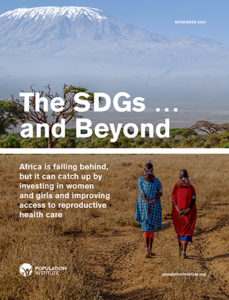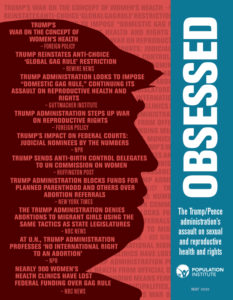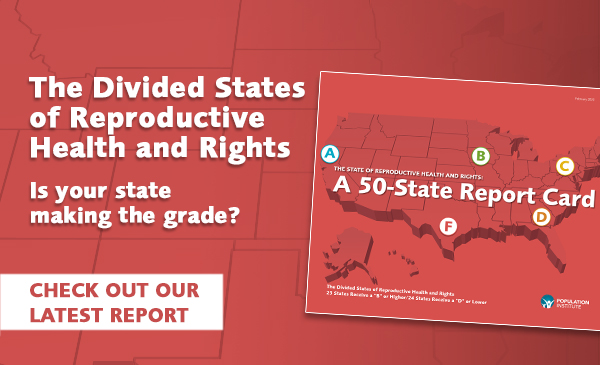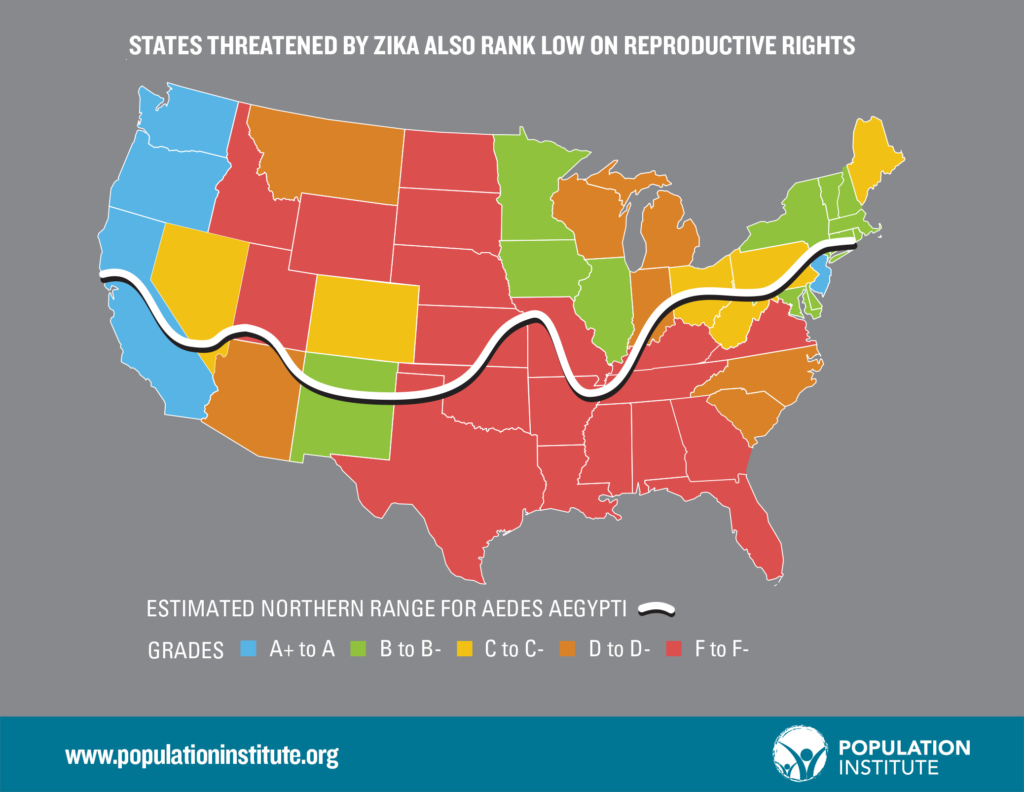Comprehensive sexuality education, or CSE, is important to the health, well-being, and overall academic achievement of all students in the United States. It can contribute, as well, to improved gender relations and tolerance of differences among individuals, increasingly important in today’s world. CSE is evidence-based sex education that can be used as a tool to provide honest, accurate, and affirming information to young people about sexual health and interpersonal relations. It empowers students to make responsible choices for themselves, avoid negative health consequences, and understand their bodies. Furthermore, CSE teaches young people to respect others’ right to bodily autonomy through consent, recognize the difference between healthy and unhealthy relationships, and show dignity and respect for themselves and others. CSE in schools is essential as it effectively counters inaccurate messages and harmful stereotypes often perpetuated by abstinence-only-until-marriage (AOUM) curriculums.
The Need for Comprehensive Sexuality Education in the United States

Twenty years ago, at the dawn of the 21st century, Africa was in a position to become a major driver—if not the primary engine—of world economic growth during the second half of the emerging century. Hopes were high that investments in health, nutrition, family planning, education, and women’s empowerment would contribute to smaller, healthier families; elevate household incomes; and yield what demographers and economists refer to as the demographic dividend: the boost in economic growth made possible by lower dependency ratios, increased personal savings, and improved education. Africa has made progress in many areas, but it has not lived up to its potential, and the window of opportunity afforded by a potential demographic dividend may be closing as climate change worsens, conflicts persist, food insecurity rises, and the pandemic persists. The stakes are high for Africa … and the world.
Download the report.
In a world increasingly threatened by environmental degradation, integrated approaches are needed to cope with climatic changes, deforestation, desertification, shrinking wildlife populations, unsustainable farming practices, and the collapse of fisheries. Livelihoods in impacted communities are being destroyed. Many of those communities are already among the poorest in the world, and because they lack access to essential health care services, including voluntary family planning, they suffer from high rates of maternal and child mortality.
Population, Health, and Environment (PHE): Investing in integrated approaches to development
A great deal of attention is paid to possible openings on the Supreme Court, especially now with the vacant seat opening since the recent death of beloved Justice Ruth Bader Ginsberg. However, only a small fraction of legal cases ever makes their way to the highest court in the land. Much of what is decided by the federal courts that effects our day-to-day life is decided by judges at the Appellate Court or District Court levels. Therefore, consideration must be given to the importance that the lower federal courts have on our sexual and reproductive rights. The Trump administration has done just that, quietly appointing over 200 judges to the lower federal courts in under four years. President Trump has been successful in effectively stacking the lower federal courts in favor of the administration’s anti-choice agenda.
Population Institute – Reshaping of the Lower Federal Courts
After a relatively late start, the COVID-19 pandemic is gathering force in Africa.
According to the World Health Organization (WHO), the novel coronavirus could infect up to
44 million people and kill up to 190,000 in the first 12 months of the epidemic, depending on the
success of containment measures. An early United Nations report projected that between 100
and 800 million could ultimately be infected on the continent, with a death toll in the millions.
In addition, economic contraction could push 27 million people into extreme poverty, reversing
hard-won development gains.
The Covid-19 Crisis in Africa: Assisting Africa Benefits the Whole World</a
The novel coronavirus pandemic affects all segments of society; however, women and girls face special challenges as the COVID-19 pandemic has major implications for sexual and reproductive health and rights (SRHR). There is growing concern about the impacts that the pandemic, pandemic related restrictions, and the resulting economic disruption are likely to have on SRHR and a broader range of issues affecting the health and wellbeing of women, girls, and LGTBQ+ people. From increased barriers to reproductive health services during the pandemic, to disruption in the global reproductive health supply chain, vulnerable populations and marginalized communities are in great danger of suffering from the secondary impacts of the coronavirus.
The Status of Sexual Reproductive Health and Rights during the COVID-19 Pandemic

The Trump/Pence administration’s assault on sexual and reproductive health and rights has become an obsession. One that defies Congress and public opinion, rejects established judicial precedents, tramples on constitutional rights and protections, and exhibits an absolute disregard for the health and welfare of millions at home and abroad. While the administration has suffered many defeats and temporary setbacks in its quest to oppress reproductive health rights, it has also enjoyed its share of successes. These victories have restricted access to reproductive health services and information and jeopardized the reproductive health and rights of women, people of color, LBGTQ+ individuals, and the poor.
The Trump/Pence assault on sexual and reproductive health and rights has been so broad that it is difficult for even well-informed advocates to stay on top of the latest developments, let alone fully understand their implications. Reproductive health advocates, however, need to understand just how much is at stake. Effective advocacy begins with informed advocates.
Download the report.

While most Americans are aware of the national political debate over birth control and abortion, many are unaware of the status of reproductive health and rights in their own state. In the interest of an informed public debate, the Population Institute released it’s 2019 50 State Report Card on Reproductive Health and Rights that gives an overview of what’s happening in the 50 States and the District of Columbia.
Find out if your state is making the grade.
Click here to read more about this Report Card
2020 National Press Release
The Divided States of Reproductive Health and Rights: A 50 State Report Card
The war on birth control has been fought under many different banners. In some sense, it is an undeclared war, as many of its adherents are unwilling to say publicly that they oppose birth control. That would be too direct and too unpopular. Instead, they assert that access to contraception must be curbed because of abortion, public morals, or the need to curb spending. None of these arguments, however, withstand any kind of scrutiny. The war on contraception, whatever the stated rationale or pretense, is bad public policy.
Every ‘war’ has winners and losers. Victory for birth control opponents would be, by any measure, a major defeat for women in the U.S. and around the world.
It’s time to end the war on birth control.
Download the report.
Lack of adequate funding is not the only hurdle to fighting the Zika virus. Many of the areas threatened by Zika—both inside and outside the U.S.—lack adequate access to reproductive health care. Every woman, wherever she lives, deserves access to a full range of reproductive health services and information. That was true before the Zika virus and it is even truer today with the spread of Zika.
In Latin America, many countries severely restrict abortion access, denying women their right to terminate a pregnancy and the poor often lack access to contraceptive services. In the United States, many of the states in the areas potentially affected by Zika are given low grades for reproductive health and rights. Dozens of family planning clinics in Gulf States, including Texas, have been forced to close because of cuts in government support for family planning and political assaults on Planned Parenthood. In these states, women—particularly low-income women—may have more limited access to family planning clinics and abortion services than women in other parts of the country.
Here’s a look at how states potentially affected by Zika rank on reproductive health and rights:

Download the report.



